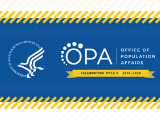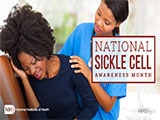I’m Fighting with My Heart for My Heart

I never had health problems when I was growing up. I played sports in high school and competitive intramural volleyball in college. I was active and fit. But then one night in October 2010, I began to experience trouble breathing. My then-husband took me to the emergency room where the doctor said my lungs were inflamed and sent me home. The next day, I went to another ER where the doctor determined that my heart was enlarged and sent me to a cardiologist who confirmed the condition.
I was diagnosed with idiopathic dilated cardiomyopathy, which is a fancy way of saying that my left ventricle was enlarged and not pumping enough blood. The condition, whose exact cause is unknown in many cases, can lead to heart failure.
I’ve since learned that heart disease is the No. 1 killer of women in the United States, and African-Americans are more likely to die from heart disease than whites. For African-American women like myself, the risk of heart disease is particularly great.
That’s why I’m now also serving as a “Heart Ambassador,” helping to educate and reassure other heart patients. And for people who aren’t patients, I tell them, “If you don’t feel well, see the doctor and find out if anything is wrong. Know your body. Know your heart.”
I didn’t know all of this six years ago when I arrived at the Baylor University Medical Center of Dallas HeartPlace clinic after the cardiologist confirmed my enlarged and poorly functioning heart. The Baylor team started treating me aggressively with medications. I was only 22—with a 2 ½-year-old son—and they hoped my heart condition might heal itself. But it didn’t, and my heart continued to weaken.
I went through three open heart surgeries over the course of five years. I had an LVAD (left ventricular assist device) implanted to help pump blood into my heart, and a second one when a blood clot developed in the first. I suffered mini strokes.
In 2014, I became listed top priority for a heart transplant. I received my gift on December 18, 2014. It was amazing. I’ve been able to go back to work as the director of the special needs ministry at my church.
There are still some serious challenges ahead, and I am now suffering mild heart failure. But I’m living my life. I swim at an indoor pool, I walk and I eat a heart-healthy diet I’m traveling and enjoying my son Desman every day. I was able to take him to Disneyland. My fight continues, but I enjoy my blessings.
During American Heart Month, learn your risk for heart disease and how to make your heart health a priority. Talk to your health care provider and check out the resources at:
- The Heart Truth program of the National Institute of Health’s National Heart Lung and Blood Institute (NHLBI);
- The Million Hearts initiative, led by the Centers for Disease Control and Prevention (CDC) and the Centers for Medicare and Medicaid Services; and
- At the CDC, where you can learn what to do to survive a heart attack and how to talk to your family about heart disease.
Additionally, Chi Eta Phi Sorority Inc., a professional organization for registered nurses and student nurses, is working with NHLBI to get more heart health information into African-American communities across the country. During February, Chi Eta Phi nurses are visiting 98 churches across 21 states, helping to provide free blood pressure screenings, encouraging congregations to develop their own heart programs, and providing information from The Heart Truth.
Two years ago, I received the awesome gift of a heart from a person I never knew. I can’t personally thank that person for the gift of more time with my son, family and friends. In recognition of American Heart Month, please consider becoming an organ donor. I actually signed up when I got my first driver’s license when I was 16 years old.
Take it from me, as a donor, you could save a life.
Meet Destany. She’s a “Heart Ambassador” who has turned her struggle with heart disease into action to help others. http://go.usa.gov/x9hTs
Diversity and Inclusion Fuels HHS OIG’s Fraud-Fighting Success
Walking and Rolling in 2017


